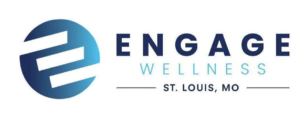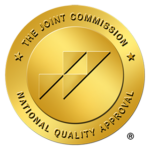Anxiety and Addiction Treatment in St. Louis
Struggling with anxiety and addiction can be common. Anxiety disorders are among the most frequently co-occurring conditions with substance use disorders (addiction) because people may turn to alcohol or drugs to self-medicate overwhelming worry, panic attacks, or social anxiety, only to find that it worsens their anxiety over time.
What Is Anxiety?
Anxiety disorders are a group of mental health conditions that are characterized by excessive and persistent worry, fear, or anxiety that can interfere with daily life, relationships, work, or other responsibilities. These feelings can persist long after the triggering event and are more severe than the types of anxiety people feel in the course of daily life. Anxiety disorders are among the most frequent behavioral health problems in the U.S., with lifetime rates of 28.8%.[1]
There are several types of anxiety disorders, including:[2]
The symptoms of anxiety can vary based on the specific disorder or severity, but may include:[3]
Panic attacks can have additional symptoms that are sometimes mistaken for a heart attack, such as numbness or tingling, feelings of impending doom, pounding or racing heart, trembling or shaking, and chest pain or discomfort[4]
With social anxiety, people may experience intense fear or anxiety in social situations that can be paralyzing, a fear of negative evaluation, and avoidance of social situations.[5]
Drug Addiction and Interaction with Anxiety
Mental health conditions like anxiety frequently co-occur with substance use disorders for several reasons. People with anxiety may use drugs or alcohol to cope with the symptoms of anxiety disorders to self-medicate, which can progress to dependence or addiction.
Panic disorder and alcohol use disorder are also connected. Alcohol withdrawal can cause anxiety, which may trigger panic attacks in people with panic disorder. This can start a cycle of using alcohol to self-medicate. Substance use provides temporary relief, the brain becomes dependent on the substance to manage anxiety, and the tolerance builds, leading to more use.

Statistics for Anxiety and Substance Use Disorder
Anxiety and addiction are deeply connected. The symptoms of anxiety can emerge during the course of substance abuse and withdrawal, and anxiety disorders are a risk factor for developing a substance use disorder. According to the National Epidemiological Survey on Alcohol and Related Conditions, 17.7% of respondents with a current substance use disorder also met the criteria for an anxiety disorder.[6]
In addition, one study of people with opioid use disorders reported that 12% of men and 21% of women met criteria for a lifetime anxiety disorder.[7] This research also found that anxiety disorders generally precede the development of co-occurring alcohol and drug use disorders at 57-80% and 67.6-100%, respectively.[8]
Causes of Anxiety and Substance Use Disorder
There’s no single cause for co-occurring anxiety and addiction, but they do have overlapping risk factors:[9]

Anxiety and Addiction Treatment Centers in St. Louis
Dual diagnosis treatment programs at Engage Wellness focus on whole-person healing and simultaneous treatment of anxiety and addiction. These addiction and mental health services are tailored to your needs with several levels of care for anxiety and addiction.
Each mental health and drug rehab treatment plan is customized to your unique needs, history, and goals, but some of the therapies we offer include:
01
which involves loved ones in the anxiety disorder treatment process to repair relationships, improve communication, and strengthen recovery outcomes.
02
Group therapy for anxiety and addiction, which brings people together in a group setting to foster a sense of community and reduce the feelings of isolation that occur with dual diagnosis.
03
12-Step groups for anxiety and addiction that bring together peers in recovery to connect, reflect on experiences, share advice, and stay accountable to their abstinence.
04
Cognitive behavioral therapy (CBT) for anxiety and addiction, which addresses the negative thought patterns that drive anxiety and substance use, replacing them with healthier coping strategies.
05
Dialectical behavioral therapy (DBT) for anxiety, which teaches emotional regulation and distress tolerance to improve anxiety symptoms and promote sobriety.
06
Eye movement desensitization and reprocessing (EMDR) therapy, which helps with reprocessing disturbing memories and reducing the stress associated with them.
07
Holistic treatment for anxiety, which may include meditation, yoga, art therapy, or other modalities for mind-body healing, wellness, and emotional balance.
08
Veterans programs for service-related trauma, anxiety, and substance abuse that addresses the unique experiences of military life and the reintegration to civilian life.



